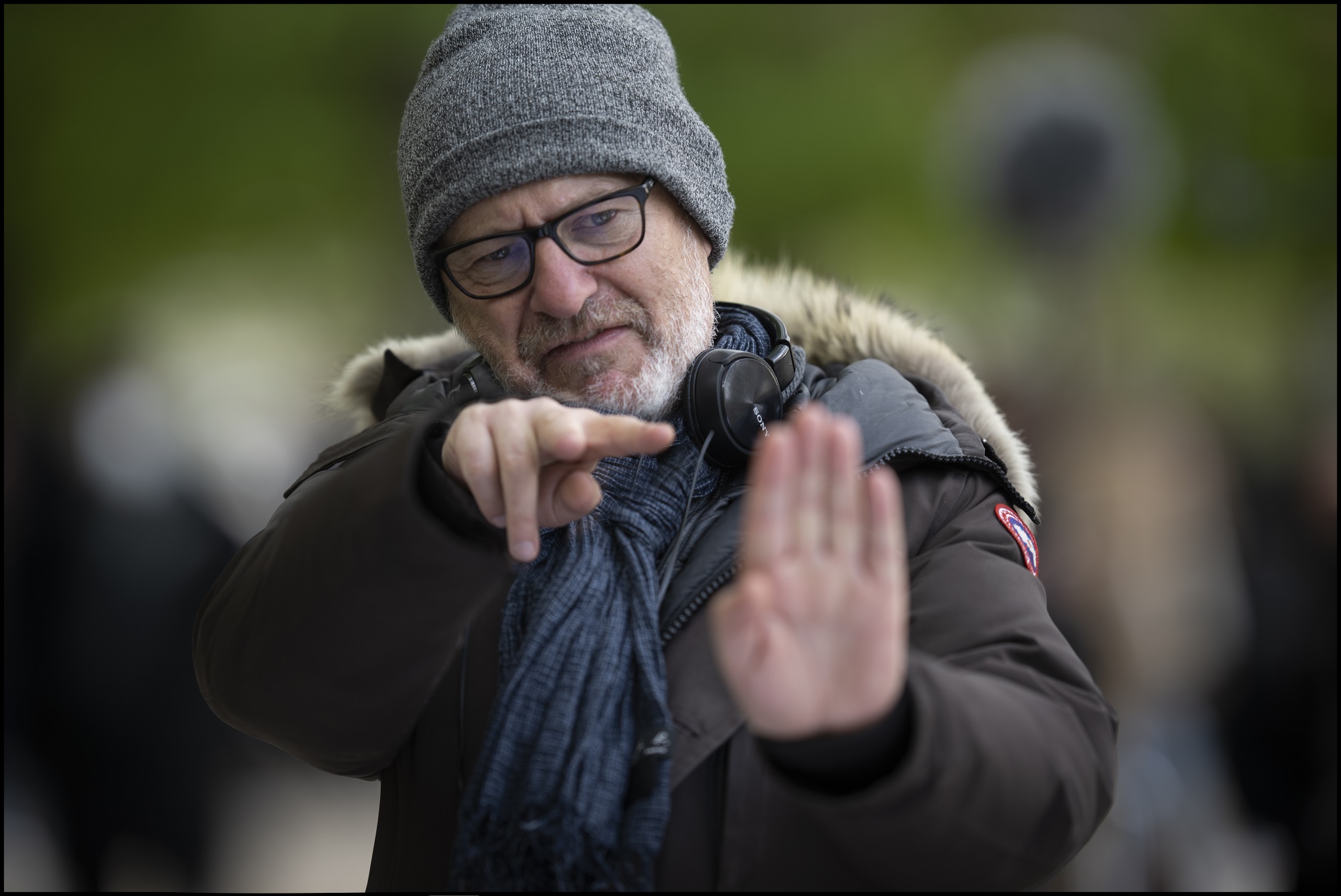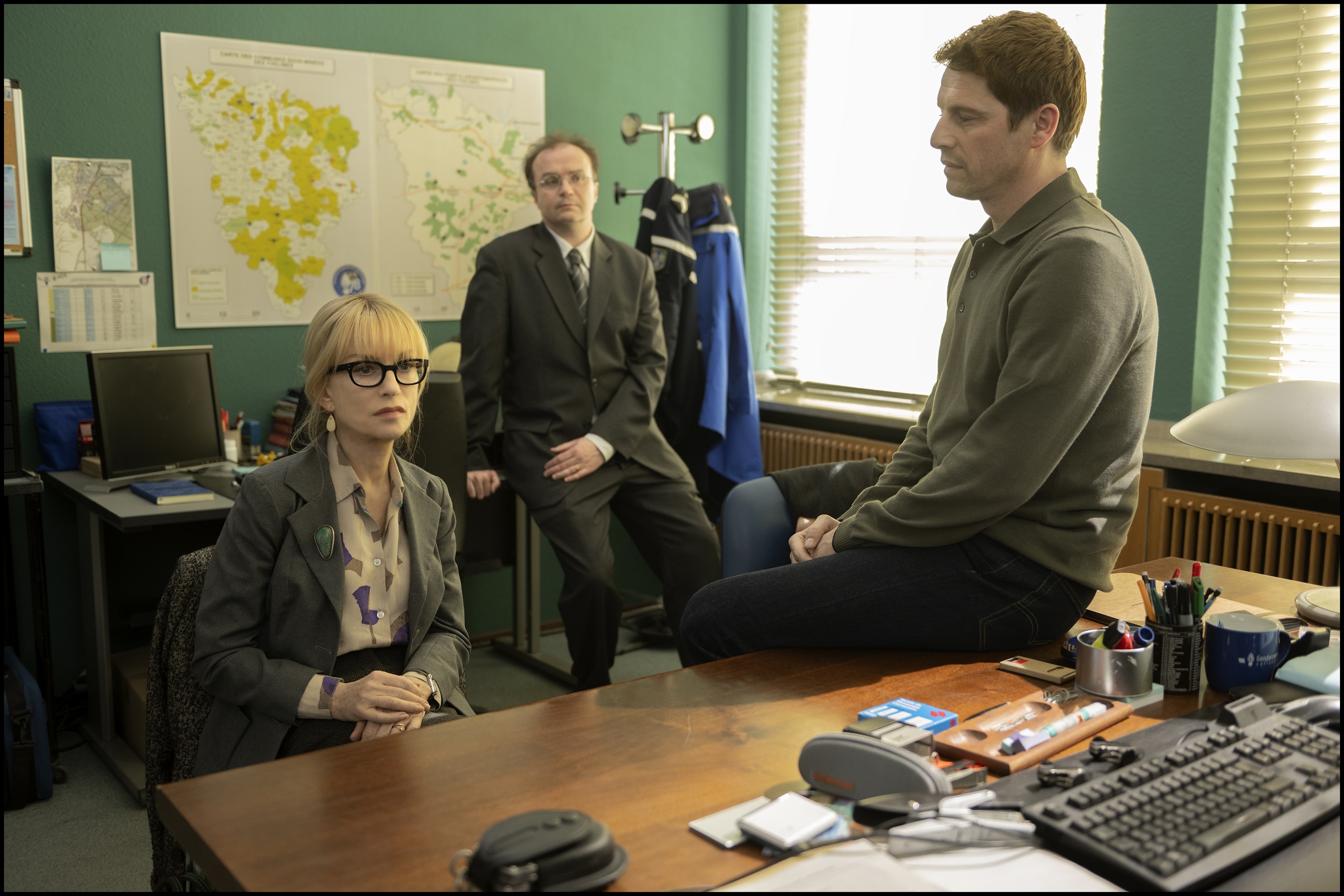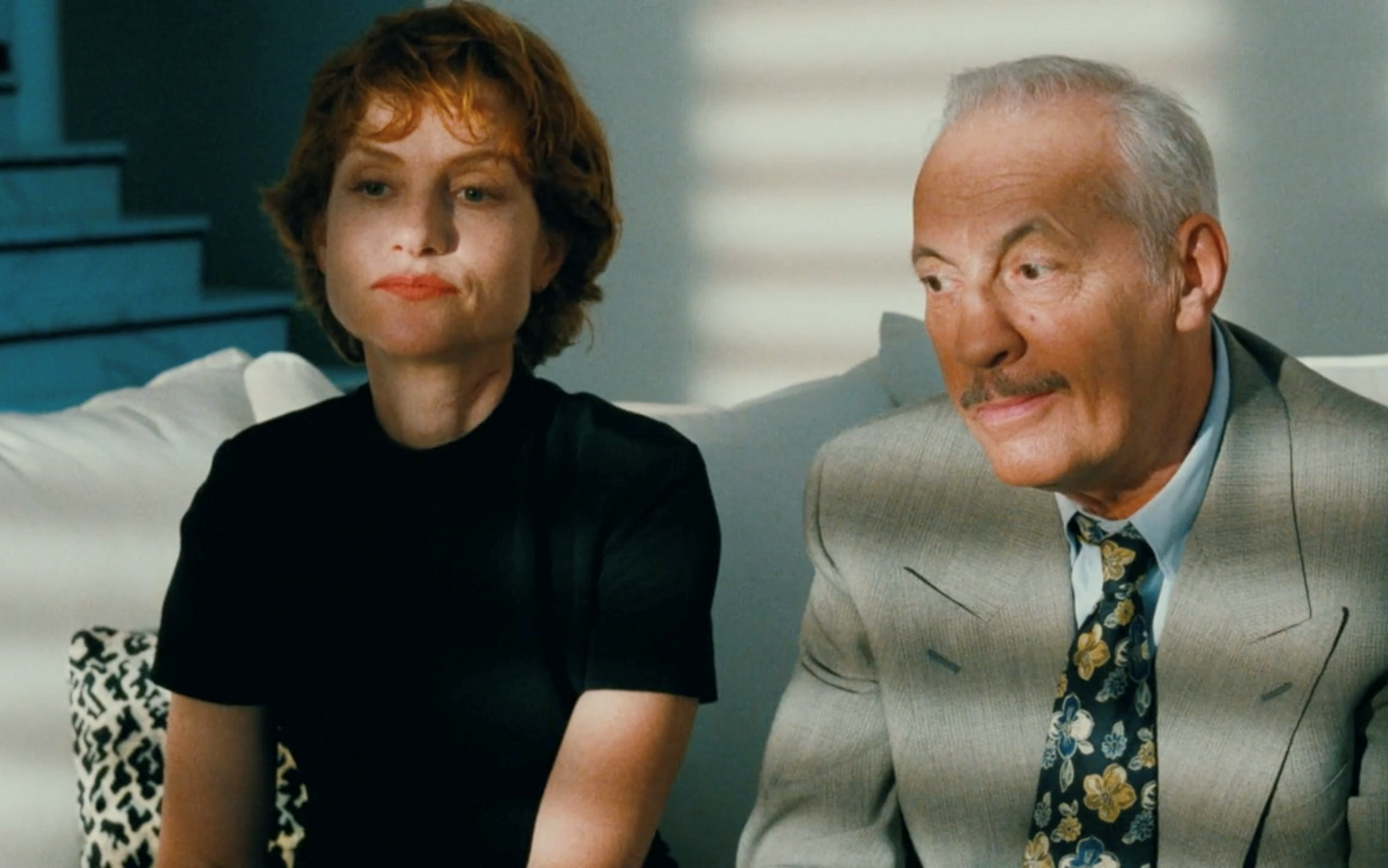Isabelle Huppert is French cinema’s icon of icy transgression, from Bertrand Blier’s outrageous Les Valseuses (1974) to Paul Verhhoeven’s Elle (2017), in which her character Michéle denies rape’s trauma, instead seeking out her rapist for sadomasochistic sex and mind-games. Huppert was Oscar-nominated for the latter, though she was ultimately too much for Hollywood.
Union representative Maureen Kearney, Huppert’s real-life role in her latest film, Jean-Paul Salomé’s La Syndicaliste, was sexually assaulted, scarred and tied up in her home shortly before whistleblowing about secret French nuclear industry deals. Again refusing to conform to the “good victim”, she was accused of inventing the assault, till new evidence emerged.
La Syndicaliste also highlights Huppert’s subtle skills of internalised thought, communicating character though her face barely flickers, like a Gallic, dramatic Buster Keaton. “Sometimes in movies, everything’s always full,” she told me on a previous meeting. “It’s nice to have a bit of emptiness.”
In a hotel room whose large window looks over central London, Huppert today is petite and almost fragile, leaving her ageless glamour onscreen. Wearing a white T-shirt which says “LOVER”, a denim jacket and dark jeans, she could anonymously vanish into the streets below.
Huppert has worked regularly with Europe’s greatest auteurs – seven films with Chabrol, four with Haneke. La Syndicaliste is her second with Salomé, pictured below, after playing a police translator turned idealistic drug-dealer in the French hit Mama Weed (2020). Here they discuss their latest collaboration, the nature of acting and deceptive identity.
La Syndicaliste is in the tradition of Seventies paranoia films like Alan J Pakula’s [The Parallax View, All The President’s Men, Klute], or Elio Petri’s in Italy [Investigation of a Citizen Above Suspicion]. But along with its grand nuclear industry conspiracy, there’s a second, semi-conscious conspiracy which Maureen finds harder to deal with, based on shared attitudes of misogyny. Did it seem that way to you?
ISABELLE HUPPERT: Yes and no, because it’s not exclusively about misogyny, because bad news doesn’t always come from men in the film, it also sometimes comes from women! Certainly most of the terrible situations she has to go through are more male-driven. But eventually she also has to face this female judge who is partly responsible for her first accusation. So it’s not as simple as it seems to be.
JEAN-PAUL SALOMÉ: I don’t know if it’s a grand conspiracy, but it’s a conspiracy against a woman. I like it to start as a big conspiracy, and then afterwards to go smaller to the face of a woman. She is the centre of this conspiracy, with the impact on her life. I agreed with Isabelle to do that.
Maureen is raped at the start, but it seems like she’s then raped over and over. By the doctor’s gynaecological examination, and then being made to reenact the rape by the police.
IH: Yes, exactly. She’s officially raped, but then she becomes publicly raped, that’s exactly what it is. And people don’t make the difference between the rape as an aggression, and the rape which is just normal by the doctor. The rape doesn’t just come from where we think.
IH: Sure, that’s exactly what it is. And even this weak strength, these two sides of her, is misinterpreted by those who don’t believe her – it makes the policeman [investigating her case] think that she made up the whole thing. So there is a kind of ambiguity about her fragility and her strength. There is something a bit undefined about her.
And she’s quite impassive a lot of the time.
IH: Well impassive in the sense that she doesn’t exteriorise her feelings or her emotions. But I wouldn’t say that she’s completely impassive. Otherwise I would be saying that about myself!
You’ve said there’s something in Maureen’s nature that’s almost complicit. Does she question herself under pressure, till she almost feels guilty?
IH: Yeah, it’s like a poison. It goes to the point where she has doubts about herself. So it goes very far, actually. But she still has the strength to fight. But even when she does that, it still creates an ambiguity for the spectator. Because she wants to find if she could have tied herself up, and in fact she can! So it’s a bit weird.
Do you calibrate Maureen’s strength and weakness through a scene? The scene in the police station when a threatening policeman comes in, for instance, and her strong front collapses…
IH: I didn’t really think about it, actually. It’s the strength of the situation that inspired me to do it this way. The scene with this unknown policeman, when she finally takes a cigarette from him, is so weird that it’s almost surreal. This man comes from nowhere, she’s not even sure he comes from the police station, he’s almost like a fantasy character. So I just had to feel that situation, and understand that something very strange is going on.
J-P S: Yes, she doesn’t know who exactly is this guy? In French we say barbouze [“fake beards”, first used for secret operatives in the Algerian War], not a spy, but in the shadows of the police. When we shot that scene it wasn’t quite working, and I told the guy to slam his fist down, and Isabelle didn’t know he was going to, and she reacted. She said, ‘That’s a really good idea. Now take again, and I’ll do it better.’ And she was better. Do you think being able to see herself in your film has helped Maureen?
Do you think being able to see herself in your film has helped Maureen?
J-P S: Yes. Last week when we showed the movie in Brussels, Maureen said, ‘This movie helped me.’ Not only with box office admissions, but people know the story now, they hear about it on the radio and in promotion everywhere in France. I think she needed that to rebuild her life. Maureen said the movie for her is sometimes a mirror, so she understood what happened with her. I think it helped with the reconstruction of her personality. We spoke in 2020, and at the time she was very fragile, because the second trial was in 2018, and very fresh. And Maureen now is not the same person. She is more strong now. Sometimes she could be a little strange. But she’s so strong, and so smart.
You’ve met Maureen, Isabelle. Is this a crusading film, that would like to help her and her case?
IH: I think she was very happy that the film was being made, and she was happy to make some public appearances and to speak. The movie was part of the recollection and the healing for her.
J-P S: Yes, and we don’t know, but maybe the case will be reopened by the justice. Because we have some hypotheses, but we don’t know exactly what happened.
You only show Maureen’s assault near the end, leaving that shadow of doubt.
J-P S: Yes, because the audience must understand why there is a doubt about the case.
And perhaps be complicit in that doubt?
J-P S: Yes, exactly, until Maureen meets the second wife [who was similarly assaulted], and realises she’s really a victim and not crazy. Until this time, we want to have the doubt about her, because the men did, and we want to have the audience in the same situation as the men. I spoke often with Isabelle about this when we were shooting. It’s not enough just to have good intentions to make a good movie. I said to Maureen, ‘It’s not a documentary, and I must play with your reality to become a fiction, to grip the audience, because it’s a movie.’ And I know that Isabelle is the perfect actress to do that, she’s so intent and so precise that she can have that ambiguity perfectly, with little small things.
J-P S: Yes. It’s strange and funny, because she’s never in the pure psychology of the character, it’s the costume, it’s the make-up, it’s the hair – it’s many things. And at the end it becomes psychology. But she works like a painter, with colours, with the light. But she is not [dealing] in the psychological reasons. Not at all. She is more instinctive than we imagine. She just wants to know the reason of the scene, and what I want to say. What must the audience understand? If we are agreed, she says, ‘Let me do it. I know what I am doing, what I need to bring to the audience.’ Like during the trial, she was a little reserved, wondering if she was too emotional. But I said, ‘It’s time, Isabelle. She’s alone, all her life is totally destroyed, and worse, it’s a woman [judge]. Now you must not to be so cold. Please, for once, do something – be fragile! Be vulnerable! You must be! Don’t be afraid.’ She said, ‘Okay. I’ll do it.’
I was surprised to see Isabelle cry in that scene, and go so far emotionally.
J-P S: When she is comfortable with a director, it’s a real collaboration. Many actors ask many, many things for nothing, but not Isabelle. She thinks beforehand, and we speak beforehand, but when we shoot – no. When she says something, it’s always very clear and smart and constructive. It’s not just blah blah. She uses few words, and she understands exactly, very quick, what she must do. She’s really just like a musician. They agree with the part, and they play it. She’s not afraid of anything, when she plays. In life, she’s afraid of all these things!
Is part of Isabelle’s art being an acting technician? That she understands the machinery of a scene and a performance?
J-P S: Yes. But it’s inside of her. When you work with her, it’s very pragmatic. Where am I sitting, where is the camera, what happened? And she plays. We’re just like workers, working on cinema. We know exactly what we want. We try our best to do that, and to connect with the audience. It’s a challenge to have this connection and keep the personality and emotion, but I like the challenge. And when you have Isabelle the challenge is easier, definitely.
You’ve talked about Jean-Paul’s direction in the context of Chabrol, Isabelle, who said once that he “wanted the moment of truth to feel like trickery”. Is there some of that slipperiness in this film?
IH: Yes. In that it keeps a sense of doubt. For me it wasn’t being ambiguous for the pleasure of being ambiguous. But it was also to make the fact that she was not believed understandable. Certain people said, of course it happened, but other people didn’t. It’s all about what the truth means and what the lie means. It’s like a little [makes clicking sound] displacement, and then you see things differently. The policeman sees the same thing as everybody else, but he gives a different interpretation, where people would say, ‘She’s weak, she’s even emotional. She just makes it up.’ Some of your later films with Chabrol were reissued on Blu-ray last year, Isabelle. The Swindle [1997], with you as a conwoman working with Michel Serrault’s older conman, pictured above, stands out among all your films for its playfulness.
Some of your later films with Chabrol were reissued on Blu-ray last year, Isabelle. The Swindle [1997], with you as a conwoman working with Michel Serrault’s older conman, pictured above, stands out among all your films for its playfulness.
IH: Yes, I like this film very much, because in a way I always felt it was very autobiographical about Chabrol himself. Also to get the idea that cinema is also about trafic – a little trade, a little business, because that’s what happens between these two characters, a younger woman and an older man, they do their own little traffic, and it’s almost to be taken as a metaphorical speech about cinema and movie-making. As we were doing this movie, we made jokes about Chabrol, saying it was saying a lot about him.
And your character the conwoman is an aspect of acting.
IH: Exactly, with confusion about identities. You don’t know when I was more or less myself, because at the beginning I have black hair and you think this is the real me, then eventually I have my own red hair, but you’re not sure which is real – is it me with my fake hair, or my own hair? It’s a whole game about identities and truth. It’s a very nice film. Deeper than it seems.
And was your relationship with Chabrol playful in that way?
IH: Yes absolutely. But also I had this type of relationship with Chabrol, where he liked to say he was like my uncle, almost!
Back in 1980, you said that all your films were the same film in a way – like a painter keeps painting a version of the same painting.
IH: Yes, I feel exactly the same now. Actually the canvas is always the same, but you put different colours on it.
I know you love being on-set, and hearing the director say ‘Action’. But has there ever been a time when you’ve been disillusioned with your job?
IH: I have to say no. I was very lucky. But I think even if I was [disillusioned], I wouldn’t confess it to myself. I would always find a way of not being that. Because you can always find a way on the contrary of saying yes you are, and that’s maybe the reason why you make more films, because it never really reaches the ultimate point that you want to reach. For an actor, it’s not your own expression. So you can reach that to a certain point. But at the end, it’s still the director’s fantasy. You can create your own little world, within the official world of the director, but still there is always a moment where you feel that it’s not exactly yours. So that’s why you do another one, another one. Like something that you always seek, but never really find.
- La Syndicaliste is in cinemas now
- More film reviews on theartsdesk














Add comment